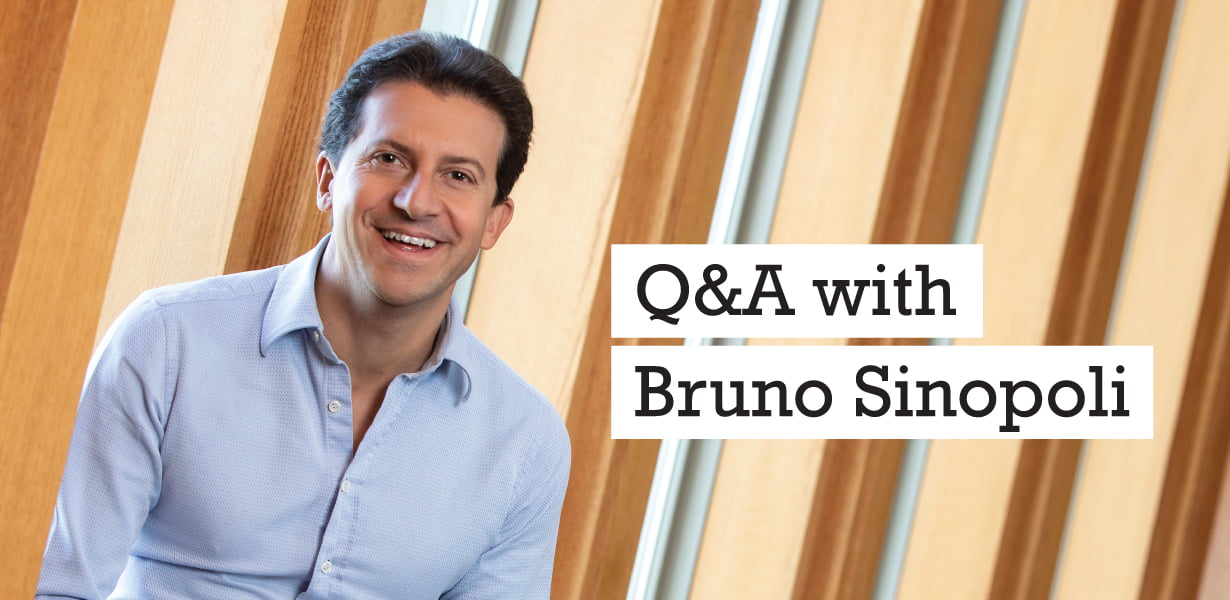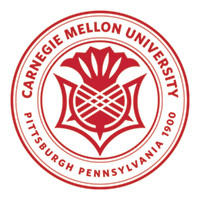Q&A with Bruno Sinopoli
Bruno Sinopoli, a renowned expert in cyber-physical systems and control systems, took over as chair of the Preston M. Green Department of Electrical & Systems Engineering in the McKelvey School of Engineering Jan. 1, 2019

Q. What attracted you to McKelvey Engineering at WashU?
A. The energy and the opportunity for growth here in Engineering, as well as the tradition of the department, which is rooted in deep fundamental science on which engineering feeds. There is a commitment to growing and becoming a leading department and a leading school, and I've found that the faculty are very competent, enthusiastic and committed. Finally, it was the awareness that I can contribute to this growth. I'm looking forward to collaborating with other departments to complement the strength that we have in order to have a complete offering that can tackle today's and tomorrow's problems.

Sinopoli earned a bachelor’s in electrical engineering from Universitá di Padova in Padua, Italy. He earned a master’s and doctorate in electrical engineering from the University of California, Berkeley.
Q. What do you see are the strengths of the department?
A. The department comes from the union of engineering and applied science, with a great tradition and drive for impactful scientific achievements; I pleasantly found the faculty uncompromising from that regard. It is also within a school with resources to grow, and there is a very welcoming and collegial atmosphere.
Q. How do you envision growth for the department?
A. There is a lot of potential. The department has fantastic strength in several areas, including a number of faculty who are committed to the understanding of modeling and analysis design of large scale complex dynamical systems, and that has numerous applications to medicine — neuroscience, for example. There's also great strength at the photonics and nanomaterials level. Finally, the signal processing, communication and circuit faculty are taking traditional fields in new, exciting directions. We need to leverage the strength of the university and faculty in this department and with the medical school, biology department and all the other engineering departments. I think there's opportunity, too, for entrepreneurship with collaborations with the business school and with the economics department.
Q. What do you see are challenges for graduates of the department?
A. I think there are great opportunities. The world is changing, and technology is going to enable a number of applications and roles that do not exist today. That comes with challenges because the role of the electrical engineer is evolving dramatically, and I think it needs to adapt to this new world. Understanding such complexities requires a certain ability to distill knowledge, and that is what will distinguish the people who execute from the people who actually create. I would like our engineers to become leaders, and I think that is a challenge for the students but also a challenge for us as faculty to empower our students.
“Most relevant problems are interdisciplinary at heart, so we’re going to have to be able to talk to different groups of people that come from different domains and speak different scientific languages.”

Q. What is your research focus?
A. I started working on problems of networked control systems with the goal of building systems that have more functionality, better performance and are overall more robust. With networked systems you have to worry about security because when you connect them, you offer an increased attack surface for malicious agents and attackers to intrude and create havoc. If we use computing and communication to control physical infrastructures, then attackers can compromise critical systems such as the power grid and our transportation system, and there's a lot of damage that can be done. I believe that, in this context, the risk is much higher than what we would encounter with simple cybersecurity because such infrastructures affect the lives of millions. As a consequence, a new paradigm is needed to deal with these problems.
Recently I've become interested in issues of social engineering. In particular, I wish to investigate the mechanisms of influence of people on each other. Nowadays several corporations have the power, with all the data they have, to understand these mechanisms and to further this understanding in ways that can really be beneficial to humanity.
Back to Engineering Momentum